A long-awaited vacation, honeymoon or business trip can be overshadowed at the very initial stage - when crossing the state border of the Russian Federation. Many citizens only then learn that they have been banned from leaving Russia. There can be a huge number of reasons for this - from outstanding debt on a loan or utilities to being in the status of a suspect in a criminal case. Of course, the easiest way to avoid such troubles is to pay your bills on time and inquire about your status in advance. But what to do if restrictive measures in the form of a travel ban have already been applied? Today we will try to consider in detail all possible options, tell you about the reasons for quickly lifting the travel ban, and also give professional legal advice.
What could cause a ban?
Restrictions on travel outside the country may be applied in the following situations:
- A citizen is in the status of a suspect or accused for a crime committed. In this case, the ban will remain in effect until the court makes an acquittal, the prosecutor closes the case, or the charges against the citizen are dropped.
- A citizen is undergoing military service in the army. During the period of granting him a short-term leave, he will not be able to travel outside the country. Current legislation leaves an exception only for contract workers, and even then they need special permission to cross the border. If you have received a legal exemption or deferment from conscription, restrictive measures cannot be applied.
- A person evades fulfilling the duties that were assigned to him by a sentence or court order.
- A citizen has access to state secrets. There are a lot of nuances in this area associated with various categories of secrecy, each of which imposes certain restrictions. If this is the minimum level of secrecy, then a travel ban is usually not applied. The “top secret” or “highly important” statuses provide for a five-year ban from the moment of last contact with classified documents from these categories.
A separate category of persons who are prohibited from traveling abroad are active FSB officers. The difference is that they are familiar with such measures in advance, even at the stage of signing the service contract. It is possible to lift the ban only by submitting a report to higher management, and this must be done no later than three months before the date of the planned trip.
How to travel abroad from the Russian Federation with debts
Now it’s worth answering the main question of the article: how can one get around the ban on leaving the Russian Federation?
White schemes
In addition to all the tricks and tricks, it is worth remembering that there are two legal methods that can be used to lift the ban.
The first method of cancellation is to challenge the order of the bailiff or court imposing a travel ban. The grounds for challenging will be: improper notification of you about the initiation of enforcement proceedings, as well as violation of the grounds for imposing a ban provided for in Article 67 of the Federal Law “on Enforcement Proceedings”.
From practice we can say that, as a rule, every third ban imposed has grounds for challenging it. You just need to contact a competent lawyer for advice.
The second way to leave a country with a ban is to have a valid reason that you can prove. If you need treatment abroad, or the death of a close relative and provide evidence, the bailiff or the court can meet you and lift the ban, and in this case it is lifted according to an accelerated procedure, literally in a day.
Gray Schemes
Now we will consider options for circumventing the ban by using the shortcomings existing in the legislative framework and bureaucratic system.
First, let's talk about traveling abroad through the Republic of Belarus; people's reviews have varied lately: some are still able to travel through this country without any problems, since there are no border controls on land transport, others have problems with the border service at the airport, before departure.
In addition to migration through the Republic of Belarus, there are tricks that work thanks to a huge bureaucratic machine. According to the purpose of the FSSP database, information about the presence or absence of prohibitions can be obtained for any person within a few minutes, regardless of where the enforcement proceedings were initiated. The only trouble is that updating the data takes quite a long time.
Therefore, a frequent change of place of residence or a change of passport by applying to the FMS with an application for a new civil passport to replace a lost, damaged one, as well as a change of last name and first name, creates for the debtor an immediate opportunity to leave the Russian Federation, through border control with countries that require when crossing borders having an internal passport. Since the data of the new passport does not immediately enter the border control databases and the bailiff services. At the same time, it will not be possible to obtain a new foreign passport from the FMS if there is a ban.
The most effective way to bypass the travel ban
at the moment - transit trains from the Russian Federation. Let's say a train from St. Petersburg to Kaliningrad, which is in transit through Lithuania (you will need a Schengen visa), or any other train, for example, through Kazakhstan (if you don’t have a visa). In both cases, it is worth buying one transit ticket, and another with the point of arrival immediately after crossing the border.
Is it possible for a debtor to travel abroad through Belarus?
Even after the introduction of a ban on traveling abroad, the debtor can bypass this restriction. The movement of citizens between Russia and the Republic of Belarus is carried out without checking documents and passing border control. This allows you to legally fly to almost any country in the world from Belarusian airports. The situation may change in the near future. The authorities of Russia and the Republic of Belarus are considering draft amendments to the agreement on mutual cooperation. The new norms provide for the exchange of information between the Ministry of Internal Affairs of the two countries, including on introduced bans and restrictions. If these amendments are approved, entry into the territory of Belarus will continue to be free. However, when passing through border control at airports, information received from the FSSP and the Russian Ministry of Internal Affairs will be checked.
Prohibition for debts
In legal practice, the largest category of persons who may be prohibited from traveling outside Russia are debtors. Here is a list of typical situations in which the following restrictive measure is applied:
- Enforcement proceedings have been initiated against the citizen by the bailiff service and there is a writ of execution;
- The amount of debt generated exceeds 10 thousand rubles;
- No more than three years have passed from the date of issue of the writ of execution;
- A copy of the ban document was sent to the debtor and representatives of the FMS.
It is important to remember that bailiffs can apply restrictive measures to a debtor only if all of the above conditions are met. The amount of debt is also of great importance. The specified amount of 10 thousand rubles applies to persons who must repay property or moral damage, as well as pay alimony. For other categories of debtors (for example, for bank loans), the minimum amount for restricting travel is 30 thousand rubles.
As practice shows, having one late payment on a loan or mortgage does not bar you from leaving the country. Even several months of non-payment of utilities usually does not lead to such strict measures. It is important to understand that a ban can only be established in court, and management companies or banks resort to such measures only if a citizen evades payment for six months.
The amount of debt at which you are not allowed to go abroad
For complete understanding, let us clarify that the amounts indicated below are only threshold amounts. That is, when they are reached, there is a chance of getting a ban, but achieving the minimum amount of debt in itself does not lead to a restriction on travel.
A ban is possible only after the relevant court ruling has been issued. But remember: the larger the debt, the higher the chance that the debtor will not be allowed to reach his destination at the border.
- For alimony and payments for damage caused (moral, property or harm to health) - 10,000 rubles;
- For all other debts - 30,000 rubles .
We discussed the amount of debt in more detail here.
How can I get information about a travel ban?
If you have any doubts about the ban, it is better to find out about it in advance than to get an unpleasant surprise when crossing the border. Usually the decision to impose a ban is sent by mail, but the absence of such a document does not mean that everything is in order. Today, to obtain such information, it is not necessary to leave home or send written requests to various authorities. The Internet will always help out, because up-to-date data can be obtained on various sites:
- Federal Bailiff Service. It contains up-to-date information about debtors for whom enforcement proceedings have been initiated, about the seizure of their property and other restrictions imposed. For convenience, you can print out a receipt for paying the fine with all the necessary details, and then make the payment.
- State services, where information about existing debts and unpaid fines is posted. Found yourself on the list? This means that the travel ban is already in effect.
- Inspectorate of the Federal Tax Service.
It should be understood that even if bailiffs have initiated enforcement proceedings against you, this does not mean an automatic ban on leaving. Find out exactly what restrictive measures have been taken and what needs to be done to remove them.
Why is this restriction imposed?
First of all, you should find out the cause of its occurrence and begin to solve the problem. The procedure for lifting restrictions is often delayed.
A travel ban is a type of restriction imposed by authorized services on a person. This is reflected in the databases and will be visible during customs control. Usually, airport (station, seaport, border guards) employees only announce the presence of a restraining order and refuse to allow the passenger to depart. It doesn’t matter whether he bought a ticket or not.
The reasons for the trip also do not matter - business trip, vacation, family relocation. The ban is individual in nature, i.e. he is named . Accordingly, family members or colleagues of the remaining citizen will be able to continue their journey calmly.
The legislation establishes the following reasons for imposing restrictions:
A. Citizen - military personnel, conscript, contract soldier or undergoing alternative training. Once the service is completed, permission to travel abroad will be restored. Contract military personnel can leave the country during official travel or with the permission of their command.
B. A person keeps state secrets or has access to a database of classified information. Usually these are employees of the relevant authorities. Everyone takes an oath, promising not to disclose information. They have greater control, and temporary restrictions on long-distance travel are reflected in the content of the employment contract. The ban remains for the entire period of service and 5 years after its end. Sometimes it is extended to 8-10 years.
C. Provided false information about himself when applying for a visa and other travel documents. Employees carefully check everything; if errors or deliberately incorrect data are identified, an investigation will be undertaken. The duration of the restriction depends on its reasons.
The standard period for “harmless” deceivers is 30 days , after which the citizen can resubmit the application. The period increases if serious motives for concealing information are revealed.
D. Citizen suspected or direct participant in a crime, an important witness. Or has one/several outstanding convictions.
E. Works in some government department - FSB or Ministry of Internal Affairs. Employees of such services are considered carriers of important information, and they are not allowed to leave the country. An exception is the direct permission of superiors or a business trip.
F. The person avoids complying with court orders. The most common reason for a ban. The debtor will not be released so that he does not run away. Usually these are alimony payments, credit debt, outstanding fines (traffic police and others). It is easier to lift the ban - just pay your creditor and submit the relevant documents to the bailiffs. Or reach an amicable agreement.
G. He is a minor. A child cannot be taken abroad if the parents oppose it. Both or one. Written permission is required when sending a child with a relative/stranger. When removing incapacitated people, written permission from their guardians is required.
All measures are temporary; no one can prohibit a person from leaving the country for the rest of his life. The exception is that he is a criminal who has committed serious offenses and is actively wanted. Then he will be detained by customs officers and handed over to the police. Usually the citizen himself is well aware of the ban.
How to lift the ban on traveling abroad?
If restrictive measures are imposed on you due to debt, then the most logical and simple solution would be to pay it off. Some people mistakenly believe that the debt can be paid just at the border, and then continue the journey. Practice shows that even in the best case, 2-3 weeks pass from the moment the debt is repaid to the lifting of the ban on traveling abroad.
The imperfection of the bailiff service often leads to the fact that the ban is applied erroneously or illegally. You can appeal the decision in court, but this requires compelling reasons. Here is a list of typical situations in which you can count on success:
- Data on the existence of debt is out of date or the amount of debt does not exceed 10,000 rubles;
- The debt has long been repaid (payment documents are available), and the bailiffs simply forgot to lift the ban;
- The ban was not approved by the senior bailiff;
- The debtor did not receive a resolution to initiate enforcement proceedings.
As an exception, a temporary lifting of the travel ban is possible if a citizen requires urgent treatment abroad. To take advantage of this opportunity, you must have supporting documents on hand - doctor’s recommendations, a concluded agreement with a foreign clinic or rehabilitation center. Sometimes a travel ban can be lifted for business reasons. Send a petition to the bailiff service, but remember: each such case is considered individually and does not guarantee success. It is best to take the help of a professional lawyer.
The cancellation of the travel ban occurs as follows: bailiffs issue a corresponding decision and send it to the border and migration services. Based on this document, information in the debtor database is also changed. It is necessary to remember this nuance: the decision to ban travel is made for a strictly defined period - 6 months. If the debt is not repaid during this period, then the bailiffs will issue a similar ruling, but this is guaranteed to take 1-2 weeks. During the interim period, the ban does not apply, so you can freely travel outside the country.
Removal of travel restrictions
Restrictions on travel can ruin a vacation or work visit outside the Russian Federation. However, this measure is absolutely legal if there is a debt or non-property claim within the framework of enforcement proceedings.
The restriction is lifted by the bailiff service immediately after the debt is repaid. This is confirmed by paragraph 4 of Article 67 of Federal Law-229. However, in practice, the restriction is not always lifted upon payment.
Before traveling outside Russia, it is recommended to find out about the existence of travel restrictions, especially if the citizen knows that he has debts to third parties. This can be done by contacting the FSSP branch or through the official website of the service.
If there was previously a restriction, but was lifted, it is recommended to take a certified copy of the decision to terminate this measure from the bailiff. In theory, the restriction is lifted within 24 hours after the decision is made, but in practice there may be delays, so it is better to worry about this in advance.
If the bailiff does not lift the restriction even after paying the debt, his actions can be appealed. There are three options:
- Higher authority . The complaint is sent to the head of the department or to the regional department of the FSSP.
- Prosecutor's office . The complaint is sent to the place of residence.
- Court . The application is sent to the regional or city court at the location of the bailiff department.
After consideration of the complaint, the restriction will be lifted. At the same time, disciplinary measures may be applied to the specialist.
Filing a complaint against the bailiff
The complaint, regardless of where it is sent, must contain information about the recipient, the applicant, as well as the bailiff who is conducting specific enforcement proceedings. It should be stated that there was a debt that was repaid, that the restriction previously imposed should be removed since there is no debt. At the end there is a request to restore the violated right.
The complaint must be accompanied by all documents confirming the applicant’s position, for example, a copy of the decision to remove interim measures, documents indicating the fact of repayment of the debt, and so on.
Download the complaint against the bailiff (sample/form)
Download the application to appeal the bailiff's decision (sample/form)
Legal assistance in preparing a complaint/application >>
Court decisions
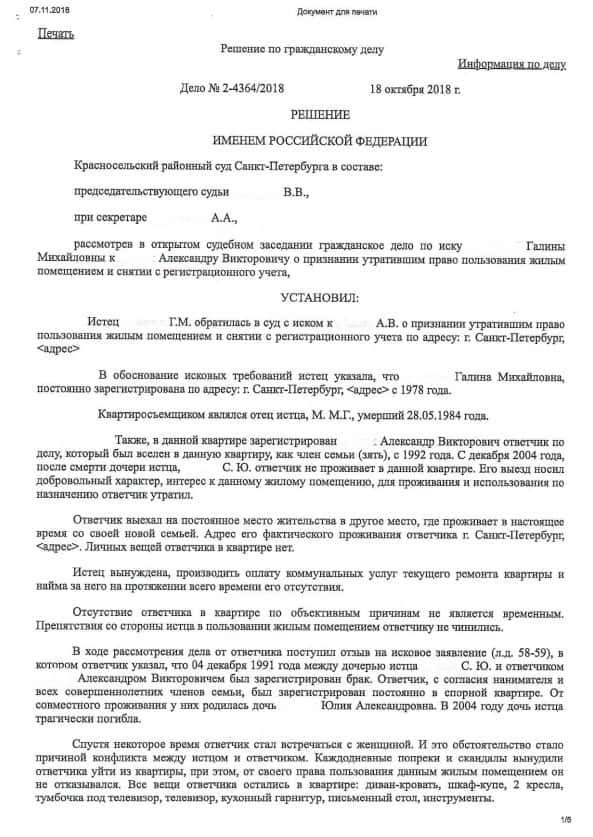
The apartment does not meet sanitary requirements
The company avoided multimillion-dollar losses
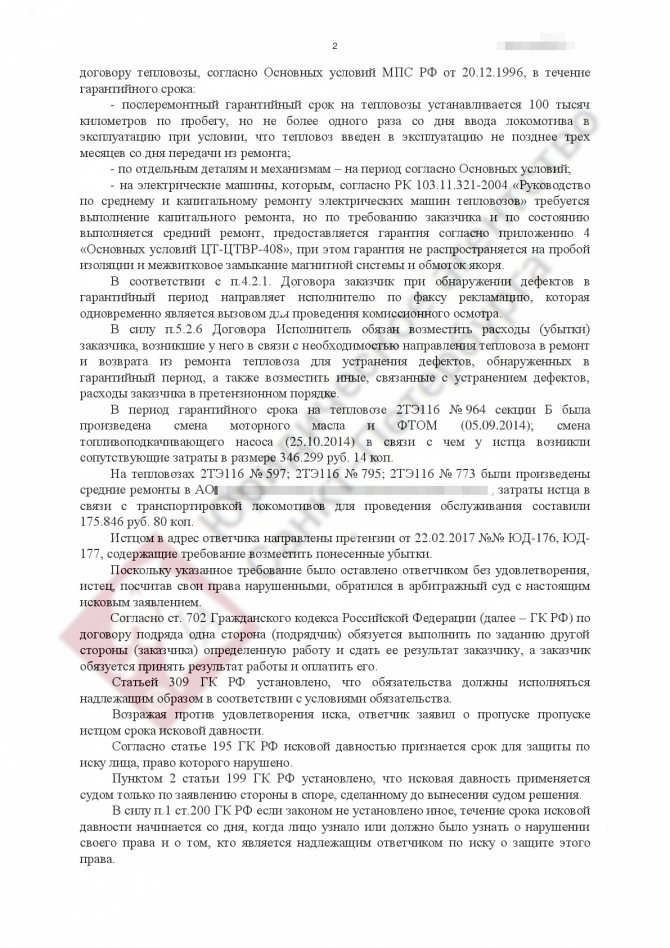
Diesel locomotive repair case: when the statute of limitations matters
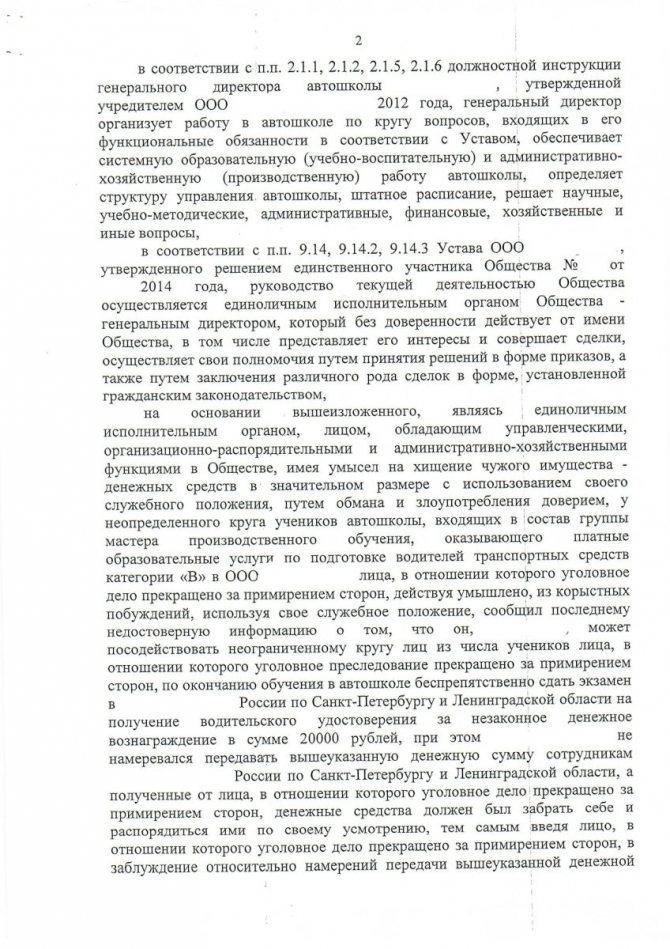
Suspended sentence for organizing a criminal community, when the penalty is up to 20 years in real terms
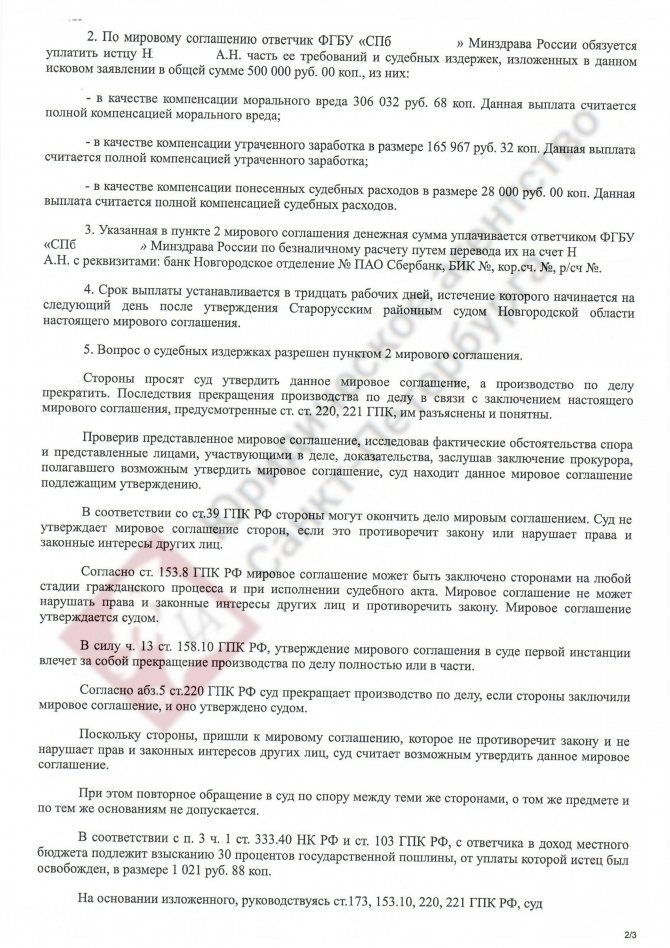
Recovery of half a million rubles from a hospital for late diagnosis
When can travel be prohibited, and how to check it
A person lives in society and enjoys all social benefits, but Russians receive utility bills, pay taxes, interest on mortgages and other loans, and do not do without fines. The state and financial institutions have many levers of influence over debtors, and one of the effective methods is a ban on traveling outside Russia.
Free legal consultation on traveling abroad>>
When going on vacation or for business abroad, it is advisable to take insurance, especially if there is reason to worry. There are two ways to check whether you are traveling or not:
- directly at the border, but this is dangerous, since you will waste money on the road.
- find out about a possible ban in advance, even before organizing a trip. This can be done for free by requesting the relevant information on the government services website (electronic government). Here you can find all the information about unpaid fines in the traffic police, court decisions and taxes. There are also paid services, a list of which can be found on the Internet.
In the form below you can check for a fee whether there are restrictions on traveling abroad. The cost of verification is 299 rubles.
The verification service is provided by the website nevylet.rf
Accordingly, if you discovered during the check that travel is prohibited due to non-payment of the loan, you can resolve this issue at the bank, where it is also better to request a certificate confirming the fact of payment. If you have utility debts, pay them and request documentary evidence of the absence of debts. There is no need to obtain certificates of payment of taxes and fines from the traffic police, but payment receipts (even in electronic form) must be saved. Paying debts does not mean that the travel ban will be lifted instantly. To do this, a certain sequence of actions still needs to be completed.
Customer Reviews
Gratitude from Loseva S.I. I express my deep gratitude to Sergei Vyacheslavovich (lawyer of the firm) for his very clear, accessible help in solving my problem (protecting rights as a consumer). This is the second time I have contacted you to solve my problems. Always everything......and in full.
With gratitude, Svetlana Ivanovna Loseva, 02/15/2019
Gratitude from Komardin I ask you to express my gratitude to lawyer Alexander Viktorovich, who competently and clearly explained to me my further actions to solve the problem that my relatives found themselves in.
02/11/18 Komardin S.I.
Gratitude I express my deep gratitude to lawyer Konstantin Vasilyevich for his attentive, kind, and, most importantly, very clear and competent explanation of my situation. It's nice to know that the world is not without good people. I wish Konstantin Vasilyevich good health, success in everything, prosperity, good, grateful clients and all the best. Sincerely.
Gratitude from Volkova N.E. I express my gratitude to Vasily Anatolyevich for his professional and competent assistance in resolving the issue of protecting my consumer rights. As a result, I received decent compensation from. Thank you!
Volkova N.E. November 30, 2018
Gratitude from Tunnova L. Sergey Vyacheslavovich! Thank you for the qualified advice you provided regarding my question in the field of consumer protection (dispute with TC OPT, the kitchen was not delivered)
Lyubov Tunnova December 12, 2018
Thanks to Pavlyuchenko A.V. from Sonets V.V. I express my deepest gratitude to Alexander Viktorovich Pavlyuchenko for the consultation and competent approach to the matter, as well as the successful outcome in my problem. I also want to express my gratitude for your kindness. I wish you success in this work that is necessary for us.
Sincerely, Sonets V.V. 05/17/2018
Gratitude from Soboleva E.P. I would like to express my deep gratitude to Vasily Anatolyevich Kavaliauskas for his literacy, consultation and attention to the client who found herself in a difficult situation; as well as wonderful, sensitive administrators. I wish the company prosperity and good clients.
Sincerely, Soboleva Elena Petrovna. September 19, 2018
Review by Gavrichkova A.N. I would like to express my deepest gratitude to Yuri Vladimirovich Sukhovarov for his humane attitude towards my problem and detailed professional advice on solving it. I wish I could meet such people in my life more often.
Sincerely, Gavrichkov Alexander Nikolaevich.
Gratitude from A.P. Sovenova and E.Ya. Komudina Dear lawyers!
Please accept our deep gratitude for your attention, professional approach and desire to help people. We especially want to highlight Dmitry Germanovich, Denis Yuryevich, Daria Valentinovna.
Best regards, A.P. Sovenov, E.Ya. Komudina
Gratitude from Plisetsky V.V. I would like to express my gratitude to Sergei Vyacheslavovich Mavrichev for his sensitive attitude and understanding towards clients. The issue was resolved within one day. I am very grateful to Sergei Vyacheslavovich.
Plisetsky V.V. October 19, 2018
Federal law on the procedure for exit and entry into the Russian Federation: official text
The grounds for banning travel abroad are contained in Federal Law 114 “On the procedure for leaving the Russian Federation and entering the Russian Federation.” The legal document was developed and approved by State Duma deputies in 1996. A month after its adoption, it came into force. The latest changes to the official text of the bill were made in 2021.
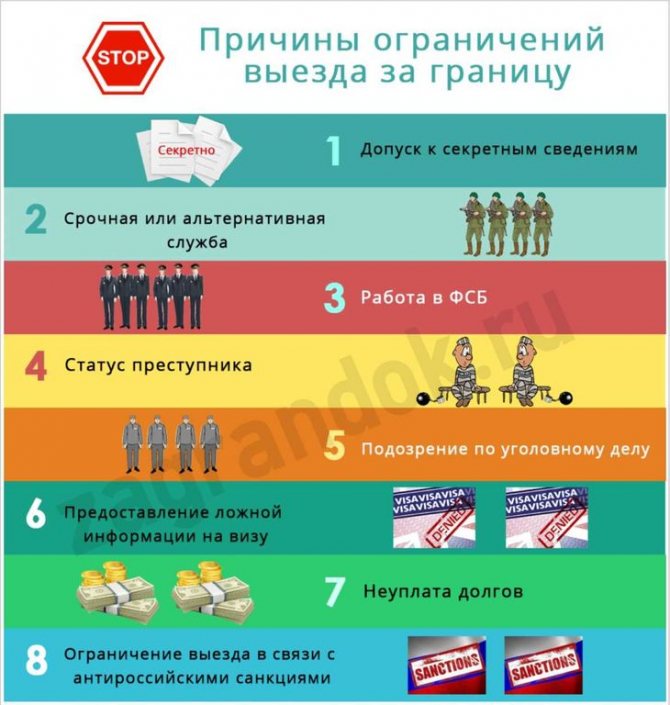
According to the provisions of the current act, a resolution certified by the signature of a bailiff is the basis for not releasing a citizen from Russia. The legislation provides the following grounds for imposing restrictions:
- For at least 5 years, persons working with sensitive information and state secrets cannot travel abroad. Typically these conditions are specified in the employee's contract. The specified period may last longer;
- It is prohibited for citizens who are in military or alternative civil service due to conscription to leave the territory of Russia. The restriction is valid until the end of the service;
- persons subject to legal proceedings may not travel abroad until the trial is completed;
- citizens convicted of a crime or serving a prison sentence cannot travel abroad;
- when imposing an administrative penalty and evading its execution, it is prohibited to leave the country;
- if incorrect information is deliberately provided to the passport office, you cannot travel abroad;
- When a businessman goes bankrupt, restrictions are imposed.
Current legislation requires written notice to be sent to persons prohibited from traveling abroad. The message shall indicate the timing and reasons for imposing restrictions. When a ban is issued, the citizen’s international passport is transferred to the passport office, where it is stored until the required period has expired.
As for military personnel, they can go abroad only if they have the permission of the higher authorities, registered as per the provisions of the law. Certain restrictions apply to residents under 18 years of age. They can leave Russia only if accompanied by one of the following persons:
- one of the parents;
- guardian;
- adoptive parent;
- trustee.
Read also: Civil Defense Law
If a minor is forced to go abroad on his own, he must provide notarized consent from his parents or guardians. Guardianship authorities must receive information about all movements of persons under 18 years of age.
The bill provides information regarding all possible nuances of leaving the territory of Russia. We suggest downloading the law banning travel abroad using the following link.
How is the ban lifted by law?
Lifting the restriction on traveling abroad is not done quickly, so even if you pay a fine or taxes at the border, you cannot count on the ban being lifted. This takes a lot of time, but there are ways to speed up the process, which we will talk about now. First, let's find out what is the basis for vetoing travel outside the Russian Federation.
The reason for banning a Russian citizen from leaving the country is most often an executive document, and the initiator of the process is bailiffs. The imposition of such a ban complies with the standards established by the provisions of Article 15 of Federal Law No. 114 of August 15, 1996. The restriction is lifted in the following cases:
- financial disputes were resolved by fulfilling the requirements of the writ of execution.
- mutual agreement has been reached between the parties to the conflict (settlement agreement).
- enforcement proceedings are completed, canceled or declared invalid.
- if the enterprise/organization acting as a debt collector has ceased to exist, as evidenced by the absence of an entry in the register.
The cancellation of the decision to prohibit travel outside the Russian Federation occurs after the bailiff service issues a decision to terminate the enforcement proceedings or its completion. The debtor, in accordance with the provisions of Federal Law No. 229 and the 49th paragraph of Resolution No. 50 of the Plenum of the Supreme Court, has his debts written off and all restrictions are lifted, including the ban on traveling abroad. The bailiff must make a decision within 24 hours; it will take some time to send the information to the border guards, so everything must be done in advance, without leaving it until the last day. Also, no later than the next day, a copy of the decision to lift the ban is sent to the debtor.









